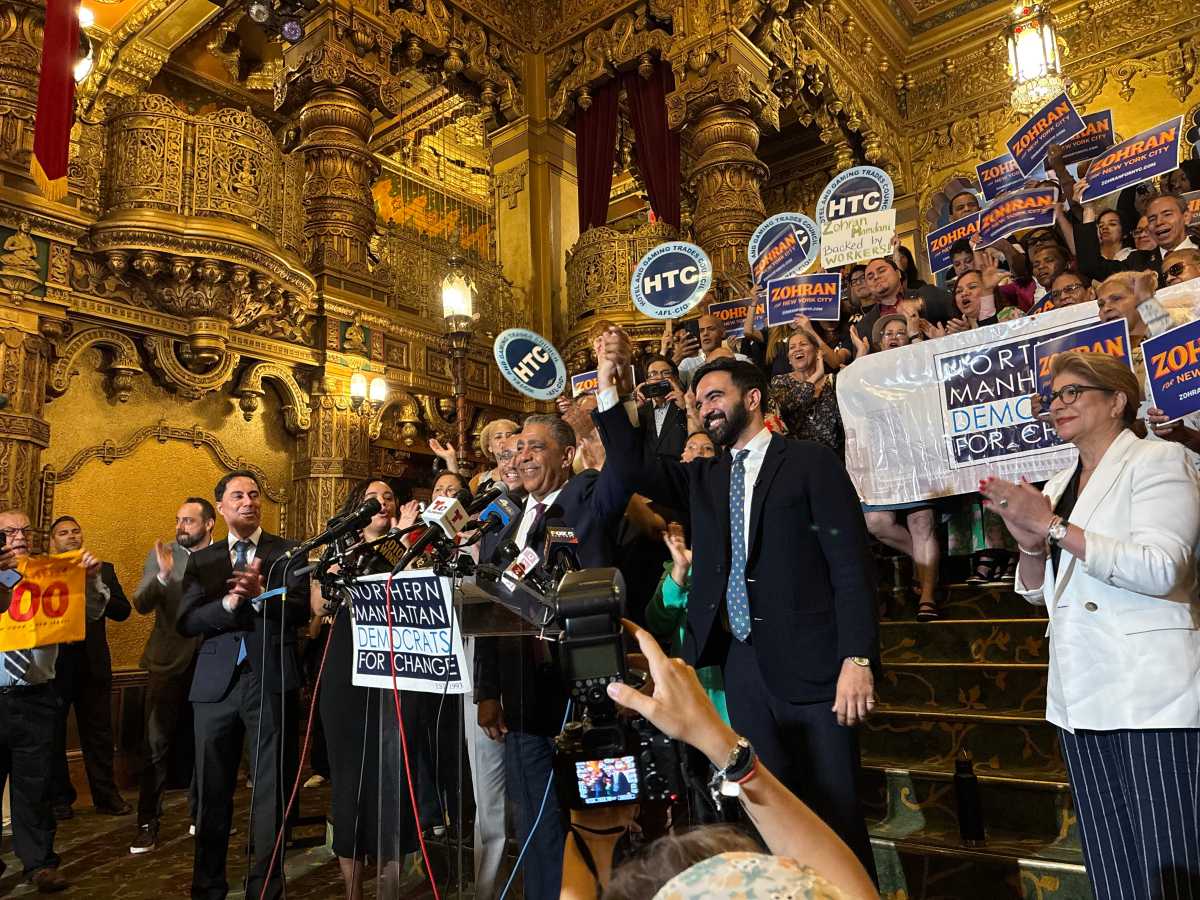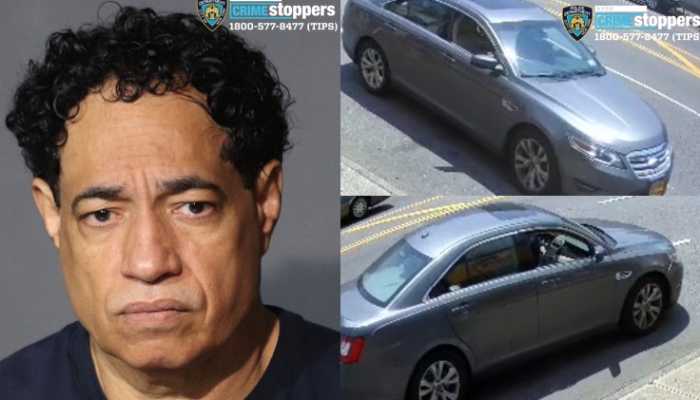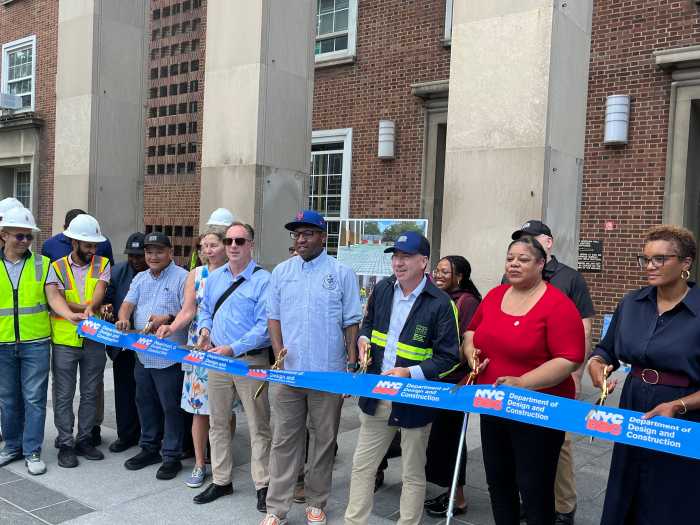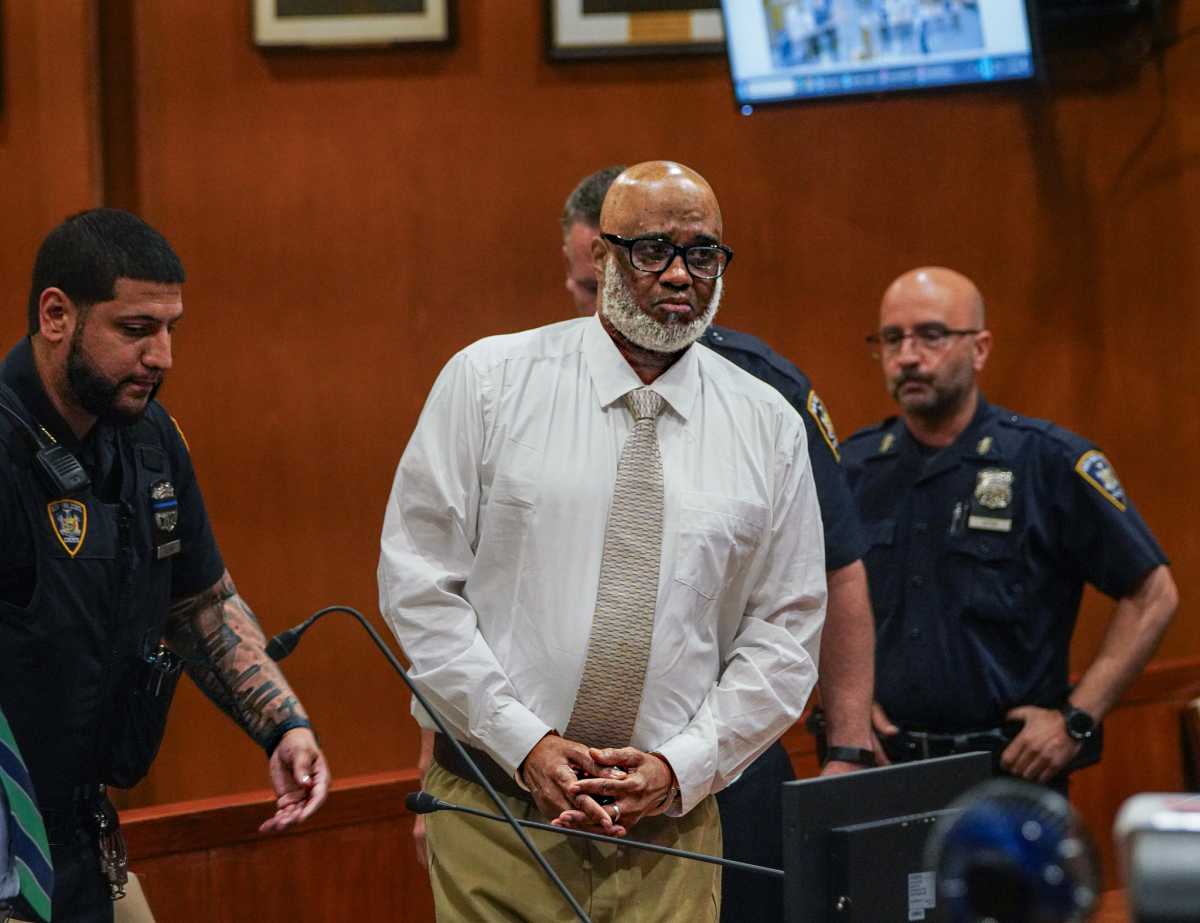By Daniel Massey
Mixing personal history with the remarkable tale of South Africa’s road to democracy, Justice Albie Sachs inspired 50 students into believing they could change the law Tuesday afternoon at a CUNY Law School lecture in Flushing.
Sachs, a member of the South African Constitutional Court, occupied the Haywood Burns chair in civil rights last year at the law school. He returned to deliver a guest lecture this week to a first-year criminal law class.
Burns, a civil rights attorney and the second dean of CUNY Law School, died in a car accident in South Africa in 1996.
Sachs was a civil rights lawyer in Cape Town in the 1950s and ‘60s, fought against apartheid as a member of the African National Congress and was an architect of South Africa’s first democratic constitution, recognized worldwide for the wide-ranging freedoms it protects.
The judge took the students on a legal walk through South Africa’s transformation from an apartheid state to a flourishing democracy, showing them how law, once used “as a weapon of destruction,” was turned into a “shield of defense” with the election of Nelson Mandela as president in 1994.
“I went from an advocate to being detained to the Security Police trying to blow me up, to coming back and helping to write the constitution and, finally, being on the Constitutional Court,” he told the students. “You can hardly get more dramatic than that,” he added, eliciting a chorus of laughter from the class.
In 1966 Sachs, who is white, was twice detained without trial by the apartheid government’s Security Police force. After spending six months in solitary confinement, he went into exile in England and then Mozambique. In 1988 he almost died when his car was blown up by South African security agents in Maputo, Mozambique.
Sachs lost his right arm below his elbow and sight in one eye in the assassination attempt. He had to learn to walk, write and in what he describes as “far more heroic” use the bathroom again. Sachs describes his recovery in detail in his book, “The Soft Vengeance of a Freedom Fighter.”
Placing emphasis on his thoughts with gestures from his good arm, Sachs told the students about a time in South African history when race was the primary factor in the judicial process.
For a large portion of his life, the law was used to separate people on the grounds of race. It forced black people to give passes to police officers upon request and allowed those same law enforcement officials to detain activists without trial.
“It told people what church they could go to, where they could go to school, where they could be buried,” he said.
Sachs said race was the most important factor when it came to capital punishment. “The ingredients that made the greatest difference had very little to do with criminal law and criminal procedure and everything to do with extraneous factors,” he said.
He then described how the tables turned with the coming of democracy in 1994. He said the first case considered by the Constitutional Court was that of capital punishment. Then President Nelson Mandela encouraged the court to overturn the laws that years earlier could have sent him to his death.
“He sent counsel to the Constitutional Court asking them to strike down the laws he had been endangered by,” Sachs said.
In a unanimous decision, the court’s nine justices declared capital punishment unconstitutional because there was no proof that a death sentence was a greater deterrent to crime than life in prison .
The new constitution stands “as a symbol of dignity of all South Africans,” Sachs said.
Students were impressed by the judge’s tale of South Africa’s transformation and peppered him with questions following a 40-minute lecture.
“I was inspired by his commitment to justice in the bad times,” said Jesse Gribben, one of the first-year students. “His story shows that change is always possible.”
Nadya Rosen, another first-year student, said “hearing that the law can shift so dramatically within my lifetime, that certain things I’m fighting for now can be realized, is inspiring.”
Reach reporter Daniel Massey by e-mail at Timesledger@aol.com or call 229-0300, Ext. 156.

































